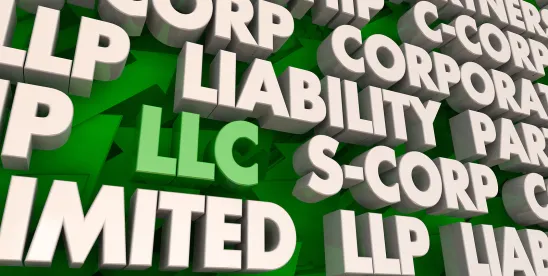In deciding whether to impose alter ego liability with respect to a limited liability company, a federal court has several possible choices. It could apply the law of the state of formation of the LLC, it could apply the forum state's law, or it could apply federal common law. In Pro 49 Dev., LLC v. Ness Express 1, LLC, 2024 WL 4712389 (E.D. Cal. Nov. 7, 2024), U.S. District Court Judge John A. Mendez chose the first option:
The Court must first determine the law that will apply to its alter ego analysis. “Where a statute dictates the choice-of-law, the court need not apply a common law choice-of-law analysis.” Wehlage v. EmpRes Healthcare Inc., 821 F. Supp. 2d 1122, 1128 (N.D. Cal. 2011) (citing Barclays Discount Bank Ltd. v. Levy, 743 F.2d 722, 725 (9th Cir. 1984)). California Corporations Code Section 17708.01 states that “[t]he law of the state or other jurisdiction under which a foreign limited liability company is formed governs . . . the liability of a member as member and a manager as manager for the debts, obligations, or other liabilities of the limited liability company.” Cal. Corp. Code § 17708.01. This statutory language “encompasses the determination of an LLC's alter ego liability.” MacRae v. HCR Manor Care Servs., LLC, No. SACV140715DOCRNB, 2017 WL 11480091, at *3 (C.D. Cal. Sept. 14, 2017). Accordingly, federal courts in California apply the law of the state of incorporation in assessing the alter ego of an LLC. See e.g., Greenlight Sys., LLC v. Breckenfelder, No. 19-CV-06658-EMC, 2021 WL 2651377, at *17 (N.D. Cal. June 28, 2021), aff'd, No. 21-16245, 2022 WL 17222415 (9th Cir. Nov. 25, 2022) (applying Ohio law because it was the state of incorporation); Wehlage, 821 F. Supp. 2d at 1128-29 (applying Washington law because it was the state of incorporation); MacRae, 2017 WL 11480091 at *3 (applying Delaware law for the alter ego analysis of a Delaware LLC, and applying Ohio law for the alter ego analysis of an Ohio LLC).
Because Ness is an LLC incorporated in Delaware, the Court applies Delaware law in its alter ego analysis.
Judge Mendez' cites Greenlight Systems, a case that I previously discussed here. In that post, I noted earlier precedents that applied federal substantive law to the application of the alter ego doctrine in the corporate context.



 />i
/>i
